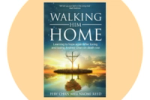Making a change in our local communities
Sam Hailes
Pioneering social change across the UK ROC is a success story for the church.. Manchester didn’t know what had hit it. It was the biggest community event to ever hit the city. 5,000 Christians from across the UK and beyond united to take part in over 300 social action projects.

Children at the ROC cafe project in Birmingham
Perhaps the biggest miracle of all was that 500 churches were successfully working together.
The week of community involvement ended with a concert featuring Phatfish, Toby Mac and the London Community Gospel Choir. 1,500 people became Christians after hearing the gospel preached by Luis Palau.
2003 was the year of Festival Manchester.
Having been headhunted by Andy Hawthorne of The Message Trust, Debra Green was responsible for the grand task of coordinate collaboration between the 500 churches.
‘There’s so much poverty here’
It was during the aftermath of Festival Manchester that Debra’s latest project: Redeeming Our Communities (ROC) was birthed.
“After the festival all sorts of other cities from around the UK were contacting the office and asking ‘can you come and help us do the same thing?’ but the Message Trust didn’t feel a calling to that.”
"Over a period of time I felt God wanted me to set up my own charity. So I set up ROC in 2004. Initially we were advising other cities about how you go about social transformation, how you bring a city together, how you coordinate projects.”
Debra believes the need across the UK is great. “I’ve been to Bolivia and seen some really poor communities but my real calling and passion is for the UK cities, because there’s so much poverty here.”
“Just yesterday I was doing a presentation in a church in Marple and heard that two out of three families in Hull are living below the bread line. We think we’re living in an affluent nation, but actually we have poverty here.”
Speaking about the London Riots, Debra says she understands why some took to the streets to steal. “A lot of families are living below the bread line and we’ve sold them this dream of ‘you can have holidays and cars and do all these amazing things.’ And they can’t. It breeds this anger and bitterness. I think we’re only going to see more of that kind of thing happen if we don’t deal with some of these issues.”
ROC launches
Redeeming Our Communities works by gathering together a small group of people in a city, town or village to plan a social action project in their community. Collaborating with whoever shares their vision, the team of volunteers will implement their idea, whether it be a café, boxing gym or multi agency community centre. This grassroots approach has led to phenomenal growth.
In 2006, when ROC launched nationally at the NEC in Birmingham, 7000 people turned up - a number that took Debra by surprise.
“There’s something stirring in the nation and churches are starting to feel community engagement is really important. From there we’ve grown and developed lots of different projects and lots of different ways of equipping the church.”
Working together
ROC’s strapline is: “People of goodwill working together for a safer, kinder society,” and the founder is delighted with the way public services have got on board with what the charity is doing.
“One of the big changes we’ve seen in the last five years is we’ve lost this political correctness where the police, the council and fire service have said 'we can’t possibly be seen to be working with the Christian Church'. That’s all gone now because of need and these huge economic cuts.”
“The police, the council, these secular agencies are forced to work with the church and it’s really opened their eyes to all that the church does and what an amazing resource the church is. We’re the biggest deliver of youth services and social services.
“They’ve taken the barriers right down and said ‘we want to work with you and not only that but we have to work with you’.
Debra believes a lot of churches haven’t realised that a “massive opportunity” awaits them.
“We don’t know how long it’s going to last where the church can reposition itself in the nation as one of the service providers which has implications for funding and the advancement of the kingdom.”
“Nobody had ever said thank you”

Debra Green
One of the most encouraging stories the team at ROC have comes from their launch in 2006.
Debra had invited 100 police officers to come to the event. Walking down to the front, these police officers received a standing ovation.
“People said thank you for the work that you do, we want you to know we appreciate you.”
“We heard a month later that one of the officers who came forward that day wasn’t a Christian and he was so touched by that applause he rang up after four weeks and said: ‘I want you to know I’ve given my life to Jesus Christ because in 30 years of being a police officer nobody had ever said thank you to me before.’ He said ‘a hard shell around my heart melted during the time of the applause and for the first time ever I felt the love of God for me.’”
“That blew us away because we ‘re not saying 'we love and appreciate you and by the way, can you become a Christian?'. We’re not saying it in that kind of way but the side product of loving and blessing and encouraging people is they begin to know God loves them and appreciates them. It's a really powerful message.”
'Be better and do more'
In the week I spoke to Debra, she had received statistics from Manchester police that revealed a 35-40% reduction in crime in the areas ROC is working in. The first ROC centre has seen a 50% reduction in crime, and Debra believes the work is “just at the beginning”.
But shouldn’t churches already be running their own social action projects?
“I kind of agree with that. People say the same things about Youth for Christ other para church organisations. But I think there is a place in scripture for the different gifts being used. The apostle Paul may not have led a local church himself but he set up local churches. He’s almost sitting outside of the local church as well as within it being able to be a provocation for the greater good."
“I don’t like projects that sit outside the local church and bypass the church. The church is God’s ‘plan A’ and he’s put all his eggs in that basket but I think there’s this provocation to be better and do more.”
'Prayer is a powerful first step'
Doing more is certainly required. And unlike some, Debra isn’t sitting back. “Sometimes we move at a snail’s pace,” she says with a sigh.
“How many of us have witnessed times when they’ll say we want to build an extension to the church; lets have a meeting and make a decision over a 5 year period of time? By then someone else has bought that piece of land and we’ve lost the opportunity."
“When we launched in Liverpool, the churches wanted us to launch in three years time and the police wanted us to launch in three months. I had to say three months is a bit short but three years is way too long, let’s go for a year.”
Debra is keen to push more churches to get more involved with their communities. “Prayer is a powerful first step but it’s not the only step,” she says. “Getting out there and doing something about it is spiritual warfare because you have to put good things into community, you can’t just get rid of the negative stuff and leave people in a vacuum.”
What does the future hold for ROC? “The vision to reach churches particularly in 2012...now is the appointed time where we can really advance the kingdom because of the national climate.”
Latest Blogs

Spiritual Growth
LENT COURSES - How to choose the right one for you
Long overshadowed by the celebrations of Easter Sunday, Lent is being rediscovered as a sacred time of reflection and renewal in its own right and a time of preparation for the joyous seasonal finale.

Featured
Stocking Fillers
Here’s our pick of the top 3 Stocking Fillers this Christmas. You can find even more at our Christmas Store.

News
Where to Watch the New C.S. Lewis Film
Heading to a screen near you soon, The Most Reluctant Convert is a feature-length movie about the life and faith of one of England’s greatest Christian writers and thinkers: C.S. Lewis.

News
Advent Study Guide Review 2021
Go deeper with this year's brilliant Advent Bible Study Guides.

Interview
Author Interview with Feby Chan and Naomi Reed
Feby tells her compelling story in her book Walking Him Home. After wrestling with grief and suffering, she shares how God’s healing and faithfulness is enabling her to step into her new life and ministry.

Featured
3 Reasons People Don’t Read the Bible
We are currently in a strange situation. Bible sales are up, but the number of people reading the Bible is going down. Even stranger, this situation is nothing new. There has always been a difference between the number of people who own a Bible and the number of people who regularly read their Bibles.
